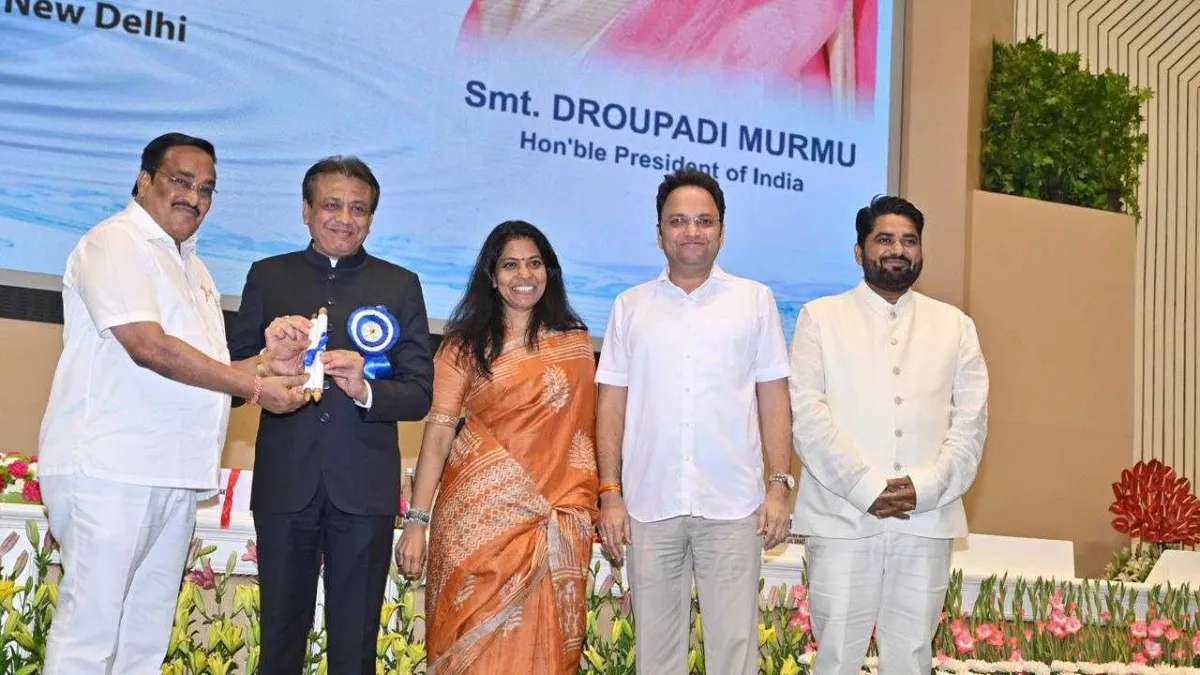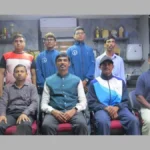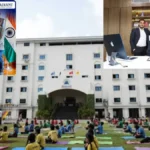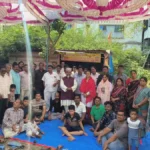Major Success Through Public Participation Model; Unique Initiative to Engage Private Societies Earns Gujarat First and National Sixth Rank
Surat has gained national recognition for its innovative initiatives in the field of water conservation. The central government’s ambitious ‘Catch the Rain’ water harvesting scheme is progressing rapidly in Surat, for which the Surat Municipal Corporation (SMC) has been awarded a prestigious prize of ₹2 crore by the Central Water Power Ministry.
At an event held in Delhi, the Central Water Power Minister presented the Surat Municipal Corporation with this award and cash prize. On this occasion, Surat’s Mayor, the Standing Committee Chairman, and the Water Committee Chairman traveled to Delhi to receive this honor.
The main reason for Surat’s success is the public participation-based model launched under the Golden Jubilee Chief Minister Urban Development Scheme, which has extensively engaged private societies. The contribution structure in this model is as follows: 70 percent contribution from government grants.
20 percent contribution from MLA or municipal councilor grants. 10 percent contribution from the municipal corporation. Additionally, in some locations, rainwater harvesting work is also being carried out with 100 percent grants from municipal corporation members.
Major reduction in registration fees. To encourage private societies, the registration fee has been reduced from ₹5,000 to just ₹100. This step has made the scheme extremely popular, resulting in Surat achieving first rank in this work across Gujarat and sixth position nationwide.
Under the Government of India’s Water Power Ministry “Catch the Rain: Where It Falls, When It Falls” campaign, 10,969 groundwater recharge systems have been successfully installed in Surat city so far. The Surat Municipal Corporation has prepared 12 different designs based on catchment area and borewell conditions and has also fixed rates for rainwater harvesting units to ensure work quality and standardization.
Surat
Surat is a historic port city in the Indian state of Gujarat, renowned as a major trading hub during the Mughal era, particularly for textiles and diamonds. Often called the “Gateway to Mecca,” it was a primary departure point for Indian pilgrims traveling to Arabia. While its prominence as a port declined with the rise of Bombay (Mumbai), it remains a global center for diamond cutting and polishing.
Gujarat
Gujarat is a state in western India with a rich history dating back to the ancient Indus Valley Civilization, home to one of the world’s first ports at Lothal. It has been a historical center for trade and commerce and is renowned as the birthplace of Mahatma Gandhi. The state’s cultural heritage is reflected in its vibrant festivals, unique handicrafts, and significant Jain pilgrimage sites.
Delhi
Delhi is a historic city in northern India that has served as the capital of several empires, including the Mughals and the Delhi Sultanate. It is home to numerous UNESCO World Heritage Sites, such as the Red Fort and Humayun’s Tomb, which reflect its rich architectural legacy. Today, it is the bustling capital of modern India, blending ancient monuments with a vibrant, contemporary metropolis.
Central Water Power Ministry
The Central Water Power Ministry is a fictional entity, not a recognized historical or cultural site. Therefore, it does not have a verifiable history or established significance to summarize.
Surat Municipal Corporation
The Surat Municipal Corporation is the civic body responsible for the administration and governance of Surat, a major city in the Indian state of Gujarat. Established in 1852 during the British colonial era, it has evolved to manage the city’s infrastructure and public services. It is particularly noted for its effective urban planning and transformation following a plague epidemic in 1994, which led to its reputation as one of India’s cleanest cities.
Golden Jubilee Chief Minister Urban Development Scheme
The Golden Jubilee Chief Minister Urban Development Scheme is not a physical place or cultural site, but a government-led initiative launched in the Indian state of Bihar. It was established to mark the 50th anniversary of the state’s formation, with the primary goal of fostering comprehensive urban development. The scheme focuses on improving infrastructure, housing, and civic amenities in urban areas across Bihar.
Government of India
The Government of India is the union government created by the Constitution of India in 1950, succeeding the British Raj. It is a federal parliamentary democratic republic, with authority divided between the central government in New Delhi and the individual state governments. Its structure is based on the Westminster model, comprising the executive, legislative, and judicial branches.
Catch the Rain
“Catch the Rain” is not a specific historical or cultural site, but rather a campaign name for India’s National Water Mission. This government initiative promotes rainwater harvesting at the local level to combat water scarcity. Its history lies in its launch as part of a broader effort to improve water security across the country.






